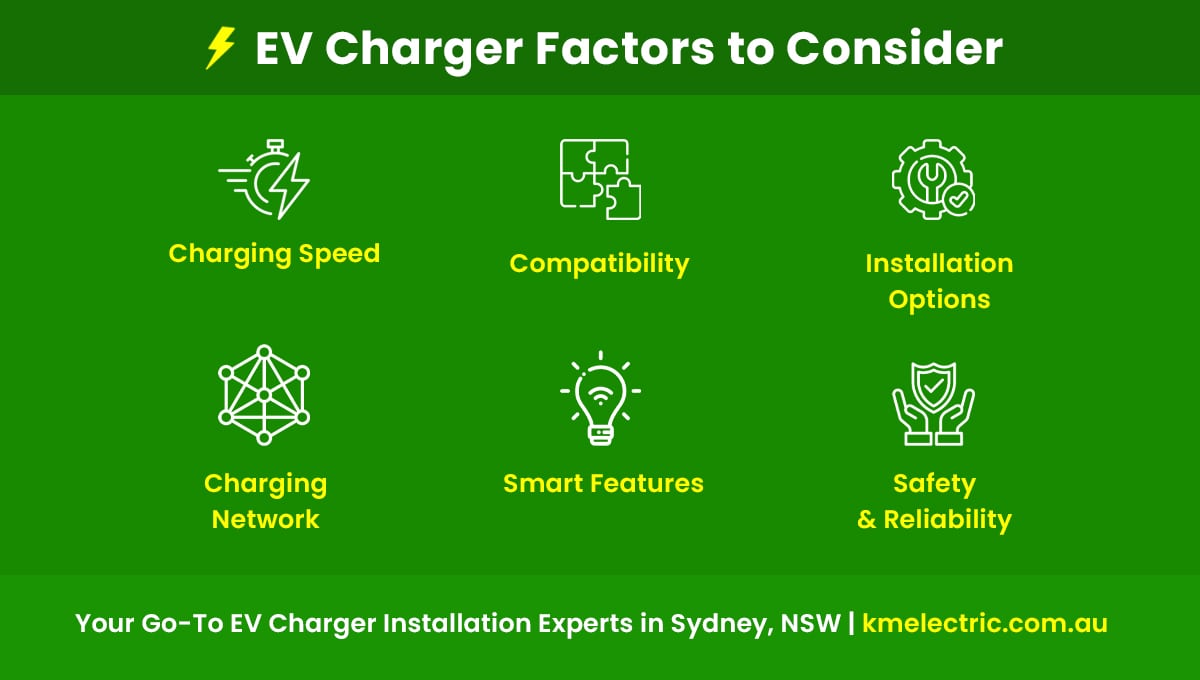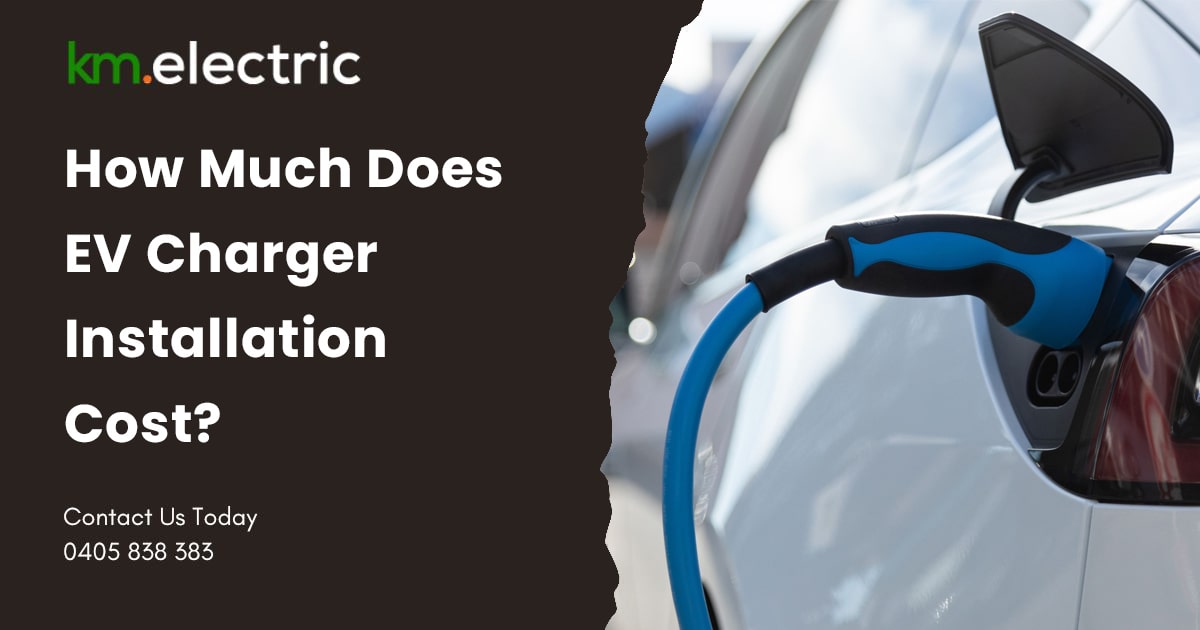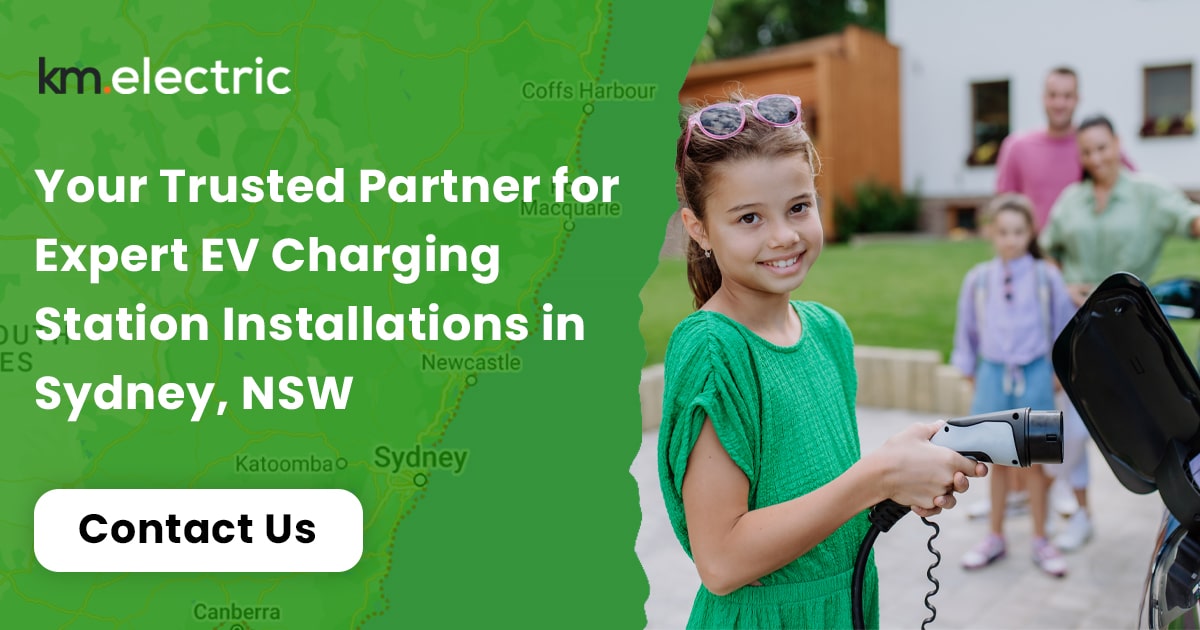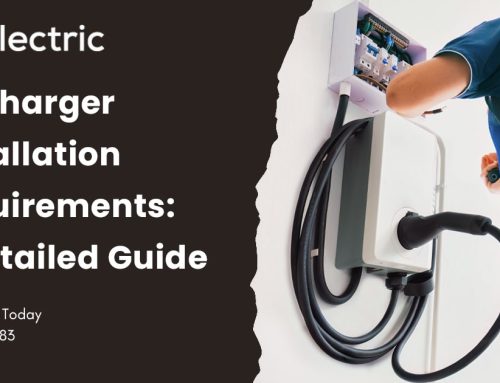As with the rest of the world, electric vehicles (EVs) continue to transform the automotive landscape in Australia. With advancements in technology and growing environmental consciousness, EVs are rapidly gaining traction among consumers.
As Australia embraces renewable energy sources, EVs play a crucial role in achieving sustainability goals. Additionally, EVs contribute to energy security by diversifying the transportation sector. While EV adoption in Australia is still in its nascent stages compared to other countries, the momentum is building, and policymakers are taking note of the potential benefits.
In fact, as reported by ABC News, EV sales in the country doubled from 3.1% of the car market to 7.2% in 2023. The impact of EVs extends beyond reducing greenhouse gas emissions; they offer a promising solution to mitigate air pollution and our dependence on fossil fuels.
Electric vehicle charger installation is paramount for facilitating widespread EV adoption. Without a robust charging infrastructure, EV owners face challenges in accessing convenient charging solutions. Home charging stations provide convenience and flexibility for EV owners, allowing them to charge their vehicles overnight or during off-peak hours.
Public charging stations, meanwhile, play a vital role in alleviating range anxiety and enabling long-distance travel. As the number of EVs on Australian roads continues to rise, the demand for reliable charging infrastructure becomes increasingly evident.
With more consumers recognising the benefits of EV ownership, including lower operating costs, reduced environmental impact, and enhanced driving experience, there’s an inevitable surge in demand for residential, workplace, and public EV charging solutions.
But then, of course, a primary concern among electric vehicle adopters would be EV charger installation cost. How much would a home EV charger in Australia cost if one gets it installed today?
In this post, we cover everything you need to know about electric car charger installation cost considerations, as well as practical tips and information on getting the right one for you.
How Much Does It Cost to Install a Home EV Charger
Installing a home electric vehicle charger in Australia involves several factors, including the cost of the charging unit itself and the professional installation.
On average, EV wall charger units are priced between $500 and $2,000. However, you need to keep in mind that this is just the cost of the hardware.
To have the EV charger installed, you’ll need to hire a licensed electrician. On average, professional EV charger installation costs can range from $750 to $1,250. However, the cost to install an EV charger at home can also vary based on several factors, such as the electric supply, distance between your switchboard and the wall charger, installation type, and so on (more on this later).
Installation work typically takes about one day, and the cost can range between $6,500 and $7,000. The charging unit connects to your home switchboard through a 32-amp single-phase line, which is often routed underneath the footpath or nature strip.
Note that the cost to install an EV charging station (including whether you require a Tesla charger installation) can vary based on individual circumstances, so it’s best to discuss your needs and specifications with a professional electrician to get an accurate estimate.

How to Choose a Charger That Suits Your Needs
As an EV owner, choosing the right electric vehicle charger is a crucial decision. Several factors come into play when selecting a charger that suits your needs, ensuring convenience, efficiency, and compatibility with your lifestyle. Here are some key considerations to keep in mind:
- Charging Speed: Determine your average driving distance per day to gauge your charging needs. If you have a short commute and primarily use your EV for local travel, a Level 1 charger (standard household outlet) may suffice. However, for longer distances or frequent travel, consider investing in a Level 2 charger for faster charging times.
- Compatibility: Ensure that the EV charger you choose is compatible with your vehicle make and model. Different EVs may require specific charging connectors or standards, such as CCS, CHAdeMO, or Type 2. Research the charging capabilities of your EV and select a charger that supports those requirements.
- Installation Options: Evaluate your home setup and determine the most suitable location for installing the EV charger. Consider factors such as proximity to your parking space, accessibility, and electrical wiring requirements. If you have a solar power system, explore options for integrating solar energy into your EV charging setup to maximise sustainability and cost savings.
- Charging Network: Assess the availability of public charging infrastructure in your area, especially if you plan to rely on public chargers for long-distance travel. Consider investing in a charger that is compatible with various charging networks and standards to ensure flexibility and accessibility when away from home.
- Smart Features: Look for EV chargers with smart features and connectivity options that enhance user experience and convenience. Features such as Wi-Fi connectivity, mobile app integration, and scheduling capabilities allow you to monitor and control charging remotely, optimise charging times, and track energy consumption.
- Safety and Reliability: Prioritise safety and reliability when selecting an EV charger. Choose products from reputable manufacturers that comply with industry standards and regulations. Look for safety features such as built-in surge protection, overcurrent protection, and weatherproof enclosures to safeguard your EV and home electrical system.
Understanding EV Charger Types
Familiarising yourself with the different types of EV chargers available in Australia is essential for optimising your charging experiences.
Each charger type offers unique capabilities and charging speeds, catering to various driving needs and lifestyles. Below, we explore the different EV charger types, highlighting their features, benefits, and suitability for different scenarios.
- Level 1 Chargers: Level 1 chargers are the most basic type of EV chargers and typically come standard with electric vehicles. These chargers plug into a standard household outlet (110 or 240 volts) and provide a slow charging rate. While Level 1 chargers are convenient for overnight charging at home, they are not suitable for rapid charging or long-distance travel.
- Level 2 Chargers: Level 2 chargers offer faster charging speeds compared to Level 1 chargers, making them ideal for daily charging needs and longer trips. These chargers require a 240-volt outlet and are commonly installed at home, workplaces, and public charging stations. Level 2 chargers can fully charge an EV in a matter of hours, depending on the battery capacity and charging rate.
- DC Fast (Level 3) Chargers: DC fast chargers (aka Level 3 chargers), provide the fastest charging speeds available for EVs. These chargers use direct current (DC) to deliver high-powered charging, significantly reducing charging times compared to Level 1 and Level 2 chargers. DC fast chargers are commonly found along major highways and busy routes, enabling EV owners to quickly recharge during long-distance travel. Examples of DC fast chargers in Australia include Tritium Veefil, EVSE Australia, and AURIGA DC Fast Charger.
- Wall Chargers: Wall chargers are compact, wall-mounted units designed for residential and commercial use. These chargers offer the convenience of dedicated charging stations without the need for extensive installation or infrastructure upgrades. Wall chargers are available in various power levels and configurations, allowing homeowners and businesses to customise their charging setup according to their needs.
- Portable Chargers: Portable chargers, also known as trickle chargers or emergency chargers, provide a convenient charging solution for EV owners on the go. These compact devices plug into standard electrical outlets and are designed for temporary or emergency use when access to a dedicated charging station is limited. Portable chargers offer flexibility and peace of mind, allowing EV owners to recharge their vehicles wherever they have access to electricity.
Choosing the right charger depends on your specific needs and usage patterns.
Notable EV charging infrastructure providers in Australia include Chargefox, Jet Charge, Tritium, EVSE, Schneider Electric, Keba, EVERTY, NHP Electrical Engineering, and eGo Dock2.
| Features | Level 1 Charger | Level 2 Charger | DC Fast Charger | Wall Charger | Portable Charger |
|---|---|---|---|---|---|
| Charging Speed | Slow (Up to 6.4km of range per hour) | Moderate (Up to 40km of range per hour) | Fast (Up to 160 km of range in 30 minutes) | Varies | Varies |
| Voltage Requirement | Standard (110 or 240V) | 240V (Single-Phase) | 480V (Three-Phase) | 240V (Single-Phase) | 240V (Single-Phase) or 120V |
| Typical Location | Household Outlets | Homes, Workplaces, Shopping Centres, Universities, Public Areas | Highway Rest Stops, Parking Lots, Public Areas | Residential | Anywhere |
| Installation Cost | Low | Moderate | High | Moderate | Low-Moderate |
| Installation Complexity | Easy | Moderate | Complex | Moderate | Minimal |
| Use Cases | Overnight Charging | Daily Commuting, Public Charging | Long-Distance Travel | Home Charging | On-the-Go Charging |
| Home Installation | Plug and Play | Professional Installation | Professional Installation | Professional Installation Recommended or DIY | Plug and Play or DIY |
| Charge Connector | Standard Household Plug or Type I (J1772) | J1772 Connector | CCS2 (Combined Charging System), CHAdeMO | Manufacturer-Specific Connector | Manufacturer-Specific Connector |
| Compatibility | All EVs | Most EVs | Specific to DC-Capable EVs | Model-Specific | Model-Specific |
| Common Power Range | Up to 1.9 kW | 3.7 kW – 19.2 kW (Single-Phase) | 50 kW – 350 kW | Varies | Varies |
Cost of Different EV Charger Types
Now, let’s explore the different types of electric vehicle (EV) chargers available in Australia and their associated costs. Here’s a breakdown of the various charger levels and their estimated costs:
- Level 1 Chargers: Level 1 chargers typically come standard with electric vehicles, and there’s no need for additional installation expenses. However, the slower charging speeds may result in higher electricity bills over time compared to faster charging options.
- Level 2 Chargers: On average, the cost to buy and install a Level 2 charger falls between $1,000 and $3,000.
- DC Fast Chargers: The cost of installing DC fast chargers is significantly higher compared to Level 1 and Level 2 chargers due to the infrastructure requirements and higher power output. Installation costs can range from several thousand to tens of thousands of dollars (e.g., $25,000), depending on factors such as site preparation, electrical upgrades, and permitting.
- Wall Chargers: The pricing for EV wall charger units varies widely, typically falling between $500 and $2,000. However, additional expenses are incurred for professional installation by a licensed electrician, and the service fee can range from $750 to $1,250.
- Portable Chargers: Portable chargers are relatively affordable, with basic models starting at around a hundred dollars. However, more advanced portable chargers with faster charging capabilities and additional features may come at a higher price.
Factors Influencing EV Charger Installation Costs
Both prospective EV owners and businesses looking to expand charging infrastructure would do well to know that there are various factors that can impact EV charger installation costs.
Several variables come into play, ranging from charger type and power capacity to electrical panel capacity and local regulations. Below are various factors that impact EV charger installation costs, including insights to help you, your business or organisation make an informed decision.
- Charger Type and Power Capacity: The type of EV charger you choose, along with its power capacity, significantly influences installation costs. Level 1 chargers, which use standard household outlets, generally have lower installation costs compared to Level 2 chargers or DC fast chargers, which may require additional electrical work and infrastructure upgrades to support higher power levels.
- Electrical Panel Capacity and Upgrades: The capacity of your home or building’s electrical panel plays a crucial role in determining installation costs. If your electrical panel lacks sufficient capacity to support the charging station’s power requirements, you may need to upgrade your switchboard to ensure safe and efficient charging.
- Distance From Electrical Panel to Charging Location: Longer distances may require more extensive wiring, conduits, and trenching, leading to higher labour and material costs. Factors such as the layout of the property and existing infrastructure also influence installation complexity and expenses.
- Installation Complexity and Site Preparation: Factors such as the need for trenching, running conduit, installing mounting hardware, and integrating smart features can increase labour and material expenses. Site-specific challenges, such as uneven terrain or limited access, may also affect installation complexity and costs. For instance, if the installer needs to dig a trench to run a power cable to a pole-mounted charger, the cost will be higher.
- Permits and Local Regulations: Obtaining permits and complying with local regulations are essential steps in EV charger installation. Permit fees vary depending on jurisdiction and may include inspections to ensure compliance with building codes and safety standards. Hiring a licensed electrician familiar with local regulations is critical for a smooth and compliant installation process.
- Additional Features and Accessories: The inclusion of additional features and accessories, such as Wi-Fi connectivity, smart charging capabilities, and cable management solutions, can add to installation costs. While these features enhance user experience and functionality, they may require additional labour and equipment to install properly.
Government Incentives and Rebates
Government incentives and rebates play a crucial role in promoting the adoption of electric vehicles in Australia. These incentives aim to encourage consumers and businesses to transition to cleaner and more sustainable transportation options while supporting the growth of the EV market.
Below are some essential details about the various incentives and rebates available at the federal, state, and local levels, as well as those offered by utility companies.
- Federal Incentives: The Australian government offers several incentives at the federal level to support EV adoption. One of the most notable incentives is the Luxury Car Tax (LCT) exemption for electric vehicles. This exemption removes the additional tax typically applied to luxury vehicles, making EVs more affordable for consumers. Additionally, the Federal Government’s Clean Energy Future package includes funding for EV charging infrastructure and research initiatives to accelerate the transition to electric mobility.
- State and Local Programs: Many states and territories in Australia offer their own incentives and rebates to encourage EV adoption and support sustainable transportation initiatives. For example, the New South Wales government provides rebates for purchasing or leasing new electric vehicles, as well as discounts on registration fees for electric and low-emission vehicles. Similarly, Victoria offers rebates for EV purchases and installation of home charging stations, along with incentives for zero-emission commercial vehicles and fleet electrification.
- Utility Company Rebates: Utility companies across the country also provide incentives and rebates to customers who install EV charging infrastructure at their homes or businesses. These incentives may include rebates for purchasing and installing home charging stations, as well as discounted electricity rates for EV owners. Additionally, some utility companies offer time-of-use tariffs and off-peak charging incentives to encourage EV owners to charge their vehicles during periods of low electricity demand, reducing strain on the grid and optimising energy usage.
Tips for Cost Savings
Navigating the electric vehicle landscape in Australia involves not only embracing sustainability but also being mindful of cost-saving opportunities.
Here are some practical tips for cost savings in the EV industry, with insights to help you make informed decisions and maximise your investment in electric transportation.
- Research local regulations and permits. Before purchasing or installing an EV charger, check local regulations and EV charger installation requirements in Australia. Some jurisdictions may have specific guidelines for EV charger installations, including zoning restrictions, permit fees, and inspection requirements. By understanding these regulations upfront, you can avoid costly fines or delays and ensure compliance with local authorities.
- Evaluate charger features and necessities. When selecting an EV charger, carefully evaluate its features and functionalities to determine what’s essential for your needs. Consider factors such as charging speed, connectivity options, and smart features, balancing them against your budget and requirements.
- Utilise available incentives. Take advantage of government incentives, rebates, and incentives offered by utility companies to offset the cost of EV ownership and charging infrastructure. Research federal, state, and local programs that offer incentives for purchasing electric vehicles, installing home charging stations, and investing in renewable energy solutions.
- Maximise energy efficiency. Optimise energy efficiency to minimise charging costs and maximise savings over time. Consider investing in renewable energy sources such as solar panels to power your home or charging station, reducing your reliance on the grid and lowering electricity bills. Additionally, take advantage of time-of-use electricity tariffs and off-peak charging rates offered by utility companies to charge your EV when electricity prices are lowest, further reducing costs.
- Plan for long-term savings. Think strategically about your EV charging setup and long-term cost savings opportunities. Invest in durable, high-quality charging equipment that will withstand the test of time and minimise maintenance expenses. Consider future-proofing your charging infrastructure by choosing scalable solutions that can accommodate future EVs and technological advancements, ensuring continued cost savings and efficiency.
Hire KM.ELECTRIC – Your Professional EV Charging Station Installer
Ensure you benefit from EV technology by choosing km.electric, your 24-hour emergency electrician in Sydney and professional installer of electric vehicle charging stations.
Contact us today for a free quote or to discuss your requirements!




